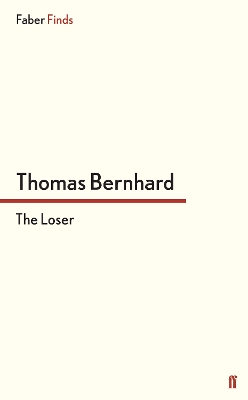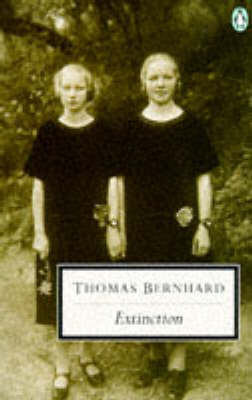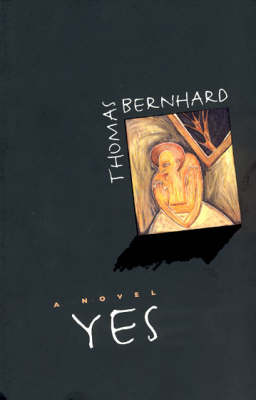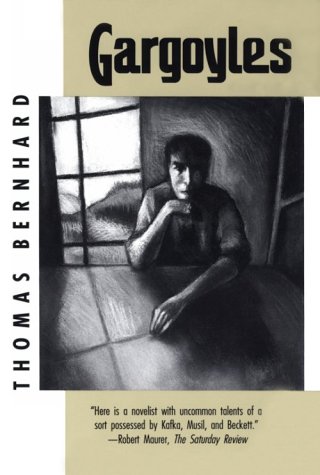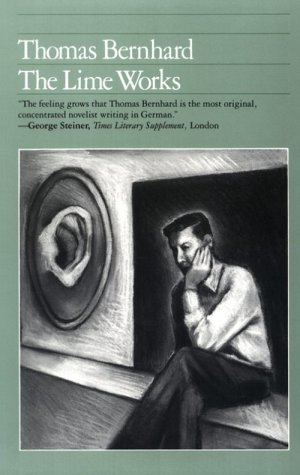Phoenix Fiction S.
6 total works
Thomas Bernhard (1931-1989) has been hailed by Gabriel Josipovici as 'Austria's finest postwar writer' and by George Steiner as 'one of the masters of contemporary European fiction.' Faber Finds is proud to reissue a selection of four of Bernhard's finest novels.
The Loser centres on a fictional relationship between piano virtuoso Glenn Gould and two of his fellow students who feel compelled to renounce their musical ambitions in the face of Gould's incomparable genius. One commits suicide, while the other - the obsessive, witty, and self-mocking narrator - has retreated into obscurity. Written as a monologue in one remarkable unbroken paragraph, The Loser is a brilliant meditation on success, failure, genius, and fame.
Written in Bernhard's seamless style, "Extinction" is the ultimate proof of his extraordinary literary genius.
"Strangely gripping. The glue that holds his remarkable novel together is the unique virtuosity of his imaginative prose, a highly original kind of writing that resembles musical patterns of theme, variations and recapitulation." --Steve Dowden, "Washington Times"
"With a breathtaking sustained intensity . . . Bernhard assaults through the voice of Murau the modern world as exemplified by his birthplace, Austria." --Thomas McGonigle, "Chicago Tribune Books"
"Perfectly balanced and continually interesting. . . . The particular fineness of Extinction lies in its depiction of a consciousness in action." --Michael Dirda, "Washington Post Book World"
Thomas Bernhard was one of the few major writers of the second half of this century.--Gabriel Josipovici, Independent
With his death, European letters lost one of its most perceptive, uncompromising voices since the war.--Spectator
Widely acclaimed as a novelist, playwright, and poet, Thomas Bernhard (1931-89) won many of the most prestigious literary prizes of Europe, including the Austrian State Prize, the Bremen and Bruchner prizes, and Le Prix Seguier.
"Certain books few assert literary importance instantly, profoundly. This new novel by the internationally praised but not widely known Austrian writer is one of those a book of mysterious dark beauty . . . . [It] is overwhelming; one wants to read it again, immediately, to re-experience its intricate innovations, not to let go of this masterful work." John Rechy, "Los Angeles Times"
"Rudolph is not obstructed by some malfunctions in part of his being his being itself is a knot. And as Bernhard's narrative proceeds, we begin to register the dimensions of his crisis, its self-consuming circularity . . . . Where rage of this intensity is directed outward, we often find the sociopath; where inward, the suicide. Where it breaks out laterally, onto the page, we sometimes find a most unsettling artistic vision." Sven Birkerts, "The New Republic""
"What he shares with the best of [writers such as Sartre, Camus, Mann, and Kafka] is the ability to extract more than utter gloom from his landscape of inconceivable devastation. While the external surface of life is unquestionably grim, he somehow suggests more the mystic element in experience that calls for symbolic interpretation; the inner significance of states that are akin to surrealistic dream-worlds; man's yearning for health, compassion, sanity." Robert Maurer, "The Saturday Review"
"The feeling grows that Thomas Bernhard is now the most original, concentrated novelist writing in German. His connections . . . with the great constellation of Kafka, Musil, and Broch become ever clearer." George Steiner, "Times Literary Supplement"
"
"A masterfully dense set of esthetic, social and political metaphors about contemporary life, about art, about obsessive commitment to anything....The book is a jungle of meaning, the opposite of simplistic allegory, and a major achievement." William Kennedy, "The New Republic""
